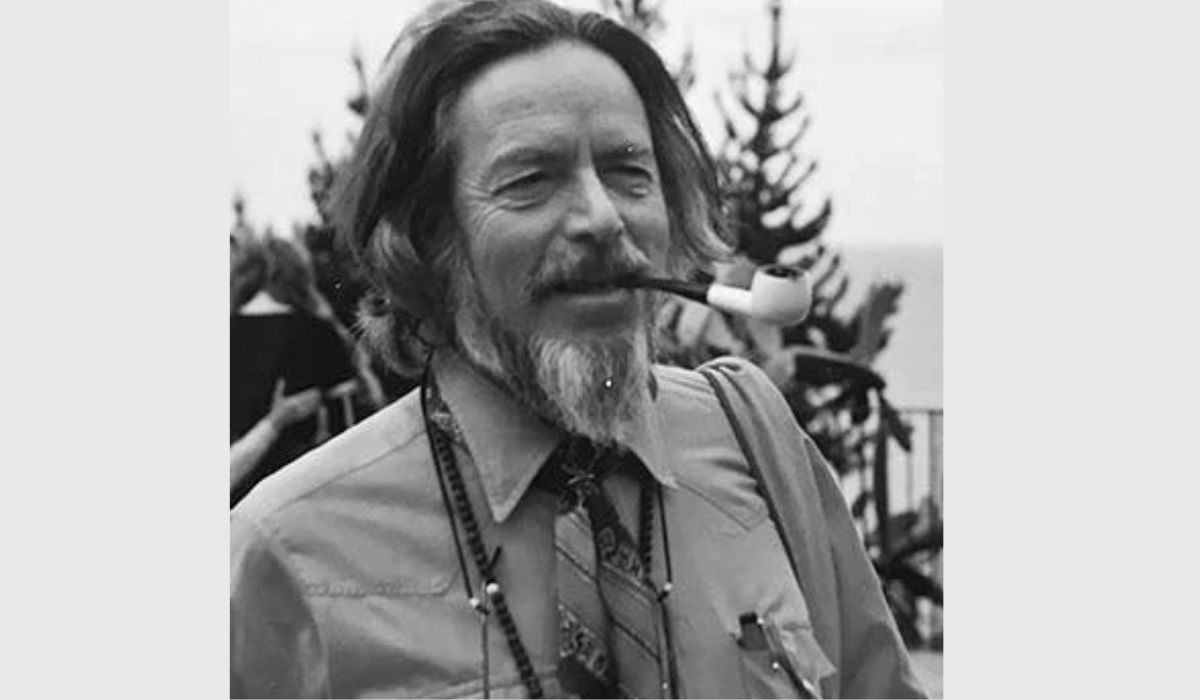The British-American philosopher, author, and public speaker Alan Watts is often credited with being the first to successfully integrate Eastern and Western philosophies. His profound and articulate teachings have touched the hearts of innumerable people who are curious about the meaning of existence. Watts has written many works in which he best alan watts book reveals his deep understanding of the human condition. The books of Alan Watts that offer the most profound insights into the nature of reality and the spiritual dimension will be discussed in this article.
The Wisdom of Insecurity: A Message for an Age of Anxiety”
All humans deal with worry and uncertainty, and Watts’ masterwork “The Wisdom of Insecurity” addresses this theme. This book, first released in 1951, examines the idea that seeking safety and certainty can increase one’s pain. Watts says that a more genuine and fulfilling life can be attained by focusing on the here and now and accepting that all things are temporary. The book encourages its readers to let go of their preconceived notions and open their minds to the possibility of change.
“The Way of Zen”
One of the most influential books ever written about Zen Buddhism is “The Way of Zen,” which was first released in 1957. Watts simplifies Zen for Western readers by providing a thorough introduction to the philosophy, ethics, and practices that define Zen. He delves into Zen’s core tenets of experiencing things for oneself and going beyond what can be said or understood. The book introduces readers to Eastern spirituality and encourages them to ponder the meaning of life and how to achieve enlightenment.
“The Book: On the Taboo Against Knowing Who You Are”
Originally released in 1966, “The Book” delves deep into the nature of identity and its place in the cosmos. Watts advocates a more integrated vision of life, challenging the traditional view of the self as a distinct and isolated entity. In doing so, he emphasizes the interdependence of all things and challenges readers to reevaluate their preconceived notions of their own identities. Wisdom from Watts can help you move away from selfish ideas and toward a more empathetic way of viewing the world.
“The Joyous Cosmology: Adventures in the Chemistry of Consciousness”
For those curious about how consciousness and psychedelic experiences overlap, “The Joyous Cosmology” provides a fresh viewpoint. In this book, first published in 1962, Watts describes his own experiments with LSD and other psychedelics. Watts investigates how these drugs can disrupt our typical ways of thinking by giving us peeks into new states of awareness. He stresses the value of making these activities part of our routine in order to increase our sense of awe and community.
“Become What You Are”
The pieces in “Become What You Are,” first released in 1957, deal with issues of self-knowledge, originality, and development. Instead than trying to fit in with the rest of society, Watts wants his readers to be themselves. This book delves into the difficulties of accepting oneself and gives advice on how to find contentment and happiness inside oneself.
“The Way of Liberation: A Practical Guide to Spiritual Enlightenment”
With “The Way of Liberation,” Watts provides a roadmap for those on the path to enlightenment. Watts, with his deep understanding of Eastern philosophies, offers a road map for overcoming self-limiting best alan watts book ideas and arriving to enlightenment. Direct experience, meditation, and awareness are emphasized throughout the book as means of awakening to one’s actual essence.
Conclusion
The ageless wisdom and fresh views in Alan Watts’ works have and will continue to have a significant impact on the lives of readers. His writings offer a deep dive into the human condition and our place in the cosmos, touching on everything from existential dread to the nature of consciousness. Whether you’re new to his work or a devoted fan, you’ll find that the advice in these books will help you live a richer, more genuine life. Alan Watts’ legacy of knowledge and enlightenment lives on via his books, illuminating our path to self-realization and growth.
FAQs
Who is Alan Watts?
British-American philosopher, author, and public speaker Alan Watts (1915-1973) was revered for his understanding of Eastern thought. He was instrumental in bringing Zen Buddhism and Taoism to a wider Western audience.
What are some of Alan Watts’ key teachings?
Some of the fundamental ideas advanced by Alan Watts were the transience of existence, the unity of all things, and the necessity of being in the here and now. He pushed people to examine their own assumptions about reality and the nature of awareness.
Which are some of Alan Watts’ most famous books?
Alan Watts is known for writing seminal works like “The Wisdom of Insecurity,” “The Way of Zen,” “The Book: On the Taboo Against Knowing Who You Are,” and “The Joyous Cosmology.” Philosophy, spirituality, and self-improvement are just few of the areas explored in these books.
How did Alan Watts bridge Eastern and Western philosophies?
Alan Watts was adept at translating Eastern philosophies for an English-speaking public. He gave Westerners a method to make sense of difficult Eastern ideas. One reason for his widespread acclaim was his skill in distilling Eastern insights into Western terms.
What is “The Wisdom of Insecurity” about? “The Wisdom of Insecurity” investigates how the human need for safety and reassurance can lead to stress and discontent. Watts claims that accepting life’s inherent unpredictability and focusing on the here-and-now might improve one’s quality of life.











